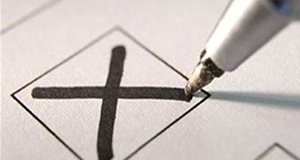
Montreal – The robo-calls scandal revealed troubling information about alleged improper communications with electors during the 2011 campaign, information that should lead to changes to the legislative and regulatory framework that governs federal elections in Canada. But any reforms should also address critical issues that arise from even legitimate communications with electors with regards to transparency, data management and privacy protection. Those are the two main conclusions in “Issues Arising from Improper Communications with Electors,” a report released today by the Institute for Research on Public Policy (IRPP).
The report summarizes the proceedings of a round table held in Montreal on December 5, 2012, organized by the IRPP and Elections Canada, which collaborated in the event as part of its broader consultation process to discussthe impact of the so-called robo-calls scandal on the conduct of federal elections.
“Our aim was to bring together policy experts and practitioners from across the country for a frank exchange on how political parties currently communicate with voters, how information and communication technologies are evolving and what that might mean for how we regulate elections in the future,” said IRPP President Graham Fox, who facilitated the round table. “Participants were asked to provide their best advice to the Chief Electoral Officer as he prepares his recommendations to Parliament on how best to address issues arising from communications with electors.”
The report makes the following recommendations:
The IRPP designed the round table dialogue, selected the participants and acted as a neutral convenor and facilitator for the event. While the report is greatly enriched by the contributions of each participant, responsibility for the summary of the discussion and the recommendations remain that of the IRPP.
The Chief Electoral Officer will present his final report to Parliament before March 31, 2013.
“Issues Arising from Improper Communications with Electors” can be downloaded free of charge from the Institute’s Web site (irpp.org).
– 30 –
For more information, or to request an interview, please contact the IRPP.
To receive our monthly bulletin Thinking Ahead via e-mail, please subscribe to the IRPP edistribution service by visiting our Web site.

Cléa Desjardins
Communications Director
514-245-2139 • cdesjardins@irpp.org